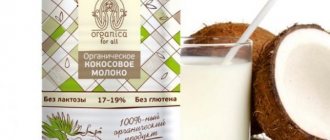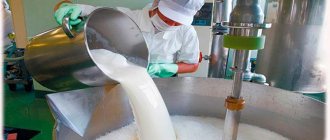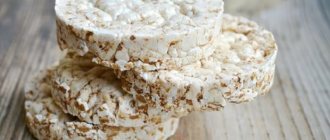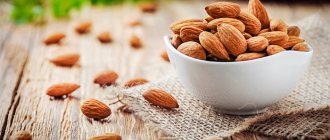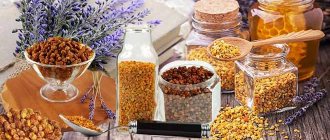Disputes about the benefits and harms of products derived from soybeans have been going on for a long time, and scientists have not yet come to a consensus on this matter. One such product that has received a lot of attention is soy milk. Of course, it has nothing in common with milk of animal origin (cow, goat, etc.), but it is still called milk because it has a similar liquid consistency, white color, a rather pleasant sweetish taste and a slight specific smell. Soy milk, like cow's milk, can turn sour, then it turns into delicious soy kefir, cheese or cottage cheese (tofu).
This plant-based product is becoming more and more popular every day in the world, especially in the countries of East Asia (China, South Korea, Japan), which is considered the birthplace of milk from plant products, as well as in the countries of South America, the USA, Canada and Western Europe. In addition, soy products, including milk, have become an integral part of the diet of vegetarians and people on fasting and various diets.
Soy milk as a food product
Is soy milk healthy?
The drink is a white liquid of plant origin, prepared from soybeans. In its appearance, consistency and taste, it resembles cow's milk.
It is prepared by soaking the beans, then rubbing them, filtering and bringing the resulting composition to a boil. Opinions about the properties of this drink are extremely contradictory.
It is worth understanding what the benefits and harms of soy milk are, what are its advantages over analogues of animal origin, and what contraindications exist for its use.
How to make the right choice
Despite such high popularity in the world, soy milk is not always found on the counter. And therefore you need to choose it quite carefully.
It is available in dry form (powdered), bottled (pasteurized) and canned. In addition to the fact that we must look at the label for the region where the soybeans were grown, we need to pay attention to the composition. Ideally it should say: soy extract (and percentage) and water (percentage). When flavorings or substances that impart a sweet taste are indicated, you need to think about whether or not to take such a product. However, when the list of ingredients contains vitamins, calcium compounds and mineral supplements, then this is what we need.
If you read: “Isolated soya protein,” this is a low-quality product. Avoid milk in clear packaging because light destroys the nutrients.
The opened container is stored in the refrigerator. But only for 3-6 days. Special storage recommendations are indicated on the label.
As for dry soybean powder, sometimes it is more convenient to use, and in terms of value and usefulness it is not inferior to bottled powder. Therefore, it is successfully used as a nutritious product by many, especially those who adhere to a vegetarian diet.
The peculiarity of dry milk is that manufacturers add the missing vitamins and microelements to it and make it closer in properties to full-fledged cow's milk, while maintaining hypoallergenic properties and low calorie content. In appearance, it is a light cream-colored powder with a nutty aroma.
True, you need to learn how to prepare this milk mixture correctly. For a glass of water or hot tea/coffee you need five to six small spoons of powder (without a slide). A few seconds - and you will have a tasty and healthy drink on your table.
Benefits of soy milk over “real” animal milk
The greatest advantage of the drink is the presence of isoflavones. These substances are very similar in functionality to estrogen. Thanks to this, the drink is a preventative against cancer, heart pathologies, and osteoporosis.
The greatest benefit of soy milk is the presence of isoflavones
It also has other advantages compared to analogues of animal origin.
Easy to digest
Lecithin, which is part of the composition, has a beneficial effect on metabolism, which accelerates metabolic processes. Thanks to this, the plant liquid is easily absorbed without causing any complications.
No cholesterol, lactose
The drink contains no lactose, as well as harmful cholesterol, which settles on the walls of blood vessels and interferes with blood flow.
Although its fat content is 2% higher than that of cow milk. The vegetable liquid is produced on the basis of beans, and the concentration of saturated fats in its composition is 9 times less.
It also contains polyunsaturated fatty acids with a concentration 10 times higher than that of animal analogues.
Regular consumption of soy milk helps reduce cholesterol levels by 25%. People with cardiovascular diseases are recommended to introduce this drink into their diet.
Be sure to read: Calorie content of sushi and rolls of the most popular types: Philadelphia and California
Low calorie
The calorie content of the product is 1.5-2 times lower compared to cow's milk. Therefore, it is recommended for people who are overweight, as well as as part of comprehensive diets for weight loss.
This is due to the fact that vegetable fats are not deposited in the subcutaneous layer, but are converted into energy. Regular consumption of soy milk allows you to quickly restore lost strength and feel constantly energetic.
How to choose and store correctly
If you cannot prepare the drink yourself, you can use the resources of retail chains, taking into account the following:
- the presence of sugars, color, taste, and smell enhancers is undesirable;
- the presence of the entry “isolated soya protein” indicates a low-quality product; you should not purchase such a product;
- the addition of vitamins and minerals is encouraged to enrich the composition;
- sunlight has a negative effect on a product rich in vitamins, so the container must be airtight and opaque;
- compliance with the expiration date.
If the product meets these requirements, after opening the packaging must be closed to protect it from air and placed in the refrigerator. The drink should be stored in this state for no longer than seven days. Products that do not meet the expiration date should not be consumed.
Benefits of soy milk
The main useful quality of this product is that it saturates the body with the necessary proteins. After all, soy protein is practically not inferior to meat protein.
It contains 8 amino acids that enhance the synthesis of enzymes that normalize metabolism at the cellular level, stimulate brain function and strengthen the immune system.
Main useful qualities:
- helps cleanse the intestines and also improves peristalsis;
- slows down the aging process;
- strengthens the walls of blood vessels and improves their elasticity;
- stabilizes the functioning of the nervous system;
- prevents fat accumulation;
- restores muscle tissue and strengthens bone tissue;
- improves oxygen access at the cellular level;
- prevents the development of depression;
- replenishes energy reserves;
- stabilizes sleep, balances emotional state.
For women
The beneficial qualities for the female body are due to the phytoestrogens, isoflavones and vitamin E included in the composition.
Phytoestrogens are very similar in quality to female sex hormones. Regular use of the product throughout the entire period of menopause helps reduce discomfort. Phytoestrogens will replenish the existing estrogen deficiency, so the woman will feel hot flashes, general malaise, and fever to a lesser extent.
Isoflavones reduce the likelihood of developing breast cancer , and also prevent the appearance of malignant tumors in the reproductive organs.
Isoflavones reduce the likelihood of developing breast cancer
Vitamin E helps restore the structure of nails and hair, helps restore the skin to its former elasticity and smoothes out fine wrinkles.
When used as part of cosmetic masks, a protective film is created on the skin, preventing the negative effects of external factors. As a result, epidermal cells retain their moisture, which significantly slows down the aging process.
For men
There is some controversy regarding the benefits for men's health. But all opinions agree on one thing: the product has a beneficial effect if you have problems with excess weight, which is achieved by stabilizing hormonal levels.
But teenagers and non-obese men should avoid introducing it into their diet, as the product can negatively affect hormonal levels and the functioning of the reproductive organs.
Benefits for weight loss
The product helps to quickly saturate the body, so nutritionists recommend drinking it for weight loss. By consuming it between meals, as well as replacing snacks with it, you can achieve the desired result without feeling hungry.
Be sure to read: Palm oil health benefits and harms, use in food
At the same time, the body receives the necessary substances in sufficient quantities with a minimum calorie content, since all components are in an accessible and easily digestible form.
To make weight loss enjoyable, it is recommended to prepare special cocktails.
Options for combining additional components with soy milk:
- lemon, kiwi, parsley, honey, mint;
- red pepper, cinnamon, ginger;
- pineapple, grapefruit.
To prepare the drink, you should mix the proposed ingredients and beat thoroughly with a blender. You should drink the resulting product before breakfast, as well as between lunch and dinner. You can dilute your diet with vegetable tofu cheese.
By following this regimen, you can get rid of 3-5 kg within 30 days. You can improve your results by adding physical exercise.
Is it possible while breastfeeding?
The presence of phytoestrogens in the composition can negatively affect the quality of breast milk. It is not recommended to use the product during breastfeeding.
The presence of phytoestrogens in the composition can negatively affect the quality of breast milk
Also, the content of isoflavones can cause hormonal imbalance in the mother’s body, which is unacceptable during the recovery period after childbirth.
For children
The product can be given to children over 5 years of age. The high protein content helps meet the growing body's need for this component.
But it is recommended to use vegetable liquid for children enriched with calcium: this combination will strengthen bone tissue and contribute to the full development of the child.
Soy dairy products
The range of products made from soy is quite wide. This is milk, as well as its derivatives: yogurt, cheeses, kefir, cottage cheese.
In terms of taste and appearance, they resemble goat or cow food products that are familiar to us. Moreover, the neutral smell, sweet taste and so-called “creamy consistency” attract the attention of the consumer. Tofu cheese, soy shakes and puddings are popular. Confectioners and bakery manufacturers use plant-based dairy products as ingredients in production.
There is a reason for this. Yogurt and kefir have a minimal amount of fat, but the same amount of microelements/macroelements/vitamins as cow or goat. Tofu is not only easily digestible, but also “fights tumor cells in the body,” scientists say.
The influence of the origin of the product on its properties
The growing conditions for soybeans, which are used in the production of the drink, significantly affect the quality of the final product.
Often, producers primarily use genetically modified crops. How dangerous this is to human health and what risks it carries is still unknown.
Studies have not been able to reveal the impact of such crops on human health. There is an opinion that they reduce human immunity and provoke the development of allergies.
Also alarming is the ability of soy to absorb dangerous chemical compounds from the environment, such as mercury and lead. If the cultivation of a crop was carried out with disregard for environmental standards, then its benefits are very doubtful.
Powdered vegetable milk will be useful if no chemical additives were used during its preparation. In this case, it retains all its beneficial properties. But often it contains substances that prevent the powder from clumping into clumps, which negatively affects the quality.
Harm and contraindications
Soy milk suppresses the endocrine system, reduces sperm production and can cause thyroid disease. Its harm is determined by the presence of organic compounds in its composition that cause functional disorders of the gastrointestinal tract and pancreas, provoke the adhesion of red blood cells, impair blood flow, and slow down the absorption of useful substances, including proteins.
An absolute contraindication to the use of this product is childhood. Phytoestrogens in its composition accelerate puberty in girls, inhibit the division of nerve cells, impair brain function in a child and can become one of the main causes of the development of Alzheimer's disease.
As a result of isoflavone entering the body, the production of hormones by the thyroid gland slows down. Therefore, the product is contraindicated for people with dysfunction of this organ. The substance can disrupt hormonal levels in women during pregnancy and lactation. For men, excessive consumption of soy milk often causes infertility.
Application in cosmetology
Many cosmetic brands use this product in the production of cosmetics that slow down the aging process of the skin. The antioxidant property can also be used at home. The easiest option is to wipe clean skin. The procedure improves nutrition at the cellular level and restores the tone of the epidermis.
Be sure to read: Palm oil health benefits and harms, use in food
To eliminate facial wrinkles and give the skin freshness, it is recommended to use masks. For oily skin - with the addition of vegetables and fruits, and for dry and sensitive skin - with vegetable oil.
How to cook at home
The production of soy drink is mastered today all over the world. It is considered traditional in China and Japan. In our country, the development of this industry began in the 30s of the last century, but to this day it has not reached the global level.
At modern enterprises producing drinks from soy, the process is automated as much as possible. The installation that performs the main manipulations bears the symbolic name “soy cow”.
Powdered soy milk
Fortunately, you can prepare an analogue of the industrial product at home, armed with a simple recipe:
- beans (about a glass) are soaked overnight in a liter of cold water;
- the strained fruits are ground in a blender, gradually adding the remaining liquid to them;
- boil the white mass over low heat for about 10–15 minutes;
- All that remains is to strain through cheesecloth and add vanilla if desired.
There is another way to prepare milk, but not from beans, but from soy flour. You can make the drink in about 30–40 minutes without any preliminary preparation. You will need 3 cups of water and 1 cup of powder:
- Add flour to boiling water, stirring constantly;
- simmer over low heat for 20 minutes;
- strain and after cooling, put in the refrigerator.
One of the old-timers and recognized leaders in the production of natural herbal drinks is the Belgian company Alpro. It offers several types of soy milk, including Original, Bio and a sugar-free option. The price of one liter is about 250–270 rubles.
Easy to prepare, easy to use
Chemical composition
This product has a very diverse chemical composition.
It contains the following substances:
| Category | What is included |
| Vitamins | Groups B, RR, E, K |
| Essential amino acids | Valine, histidine, isoleucine, lysine, leucine, threonine |
| Macronutrients | Potassium, calcium, phosphorus, sodium, magnesium |
| Macronutrients | Copper, iron, manganese, zinc |
The structure of soy proteins is very similar to animal proteins. Therefore, soy products are present in the diet of vegetarians.
What it is
Soy milk is a white liquid with a slight bean aroma and a sweetish taste. It is made from specially soaked soybeans, pureed, filtered and brought to a boiling point.
Soy milk was first produced in China, and today it is more popular and in demand in Asia and North America. Here it is an inexpensive alternative to cow's milk.
Important! The color and taste of milk is really similar to cow's milk, but it does not contain milk sugar, and this is important for anyone who is lactose intolerant.
Every year, soybean plantations increase by thousands of hectares; they are used to make meat substitutes, tofu cheese and milk.
Recommended reading: Health Benefits of Tofu Cheese
Why take soy protein and who needs it?
It is needed primarily for those who limit themselves in nutrition. By the way, soy protein is used almost everywhere: take the time to look at the labels of your favorite sausages, dumplings and other semi-finished products.
Soy protein for athletes: muscle growth
Soy protein is essential for athletes who want to gain enviable muscle mass: it is popular along with whey protein, but the latter should not be taken by people with milk protein intolerance.
Recovery from heavy physical activity
Soy products contain important antioxidants - isoflavones and saponins. They help muscles quickly recover after intense exercise (it is clear that they are needed not only by athletes and athletes, but also by those who work physically: miners, lumberjacks, sleeper layers, builders, and so on).
Optimal functioning of the cardiovascular system
The heart is also a muscle, so for its normal functioning it also needs protein: soy protein contains a lot of unsaturated fats and few saturated fats, vitamins and minerals are what the doctor ordered. To all of us, regardless of age and gender.
Weight loss
Soy products themselves do not lead to the loss of those unfortunate extra pounds and centimeters, but they may well help with restrictive diets: weight loss will definitely happen if you replace fatty sausages with soy bars or cocktails, but there will be no harm to the body.
Myths about the dangers of soy: what is true and what is not?
Now let's look at why soy products may be unwanted and unloved.
Soy and GMO
The main concern with soy is genetic modification. It is known that by 2009, 90% of soy products on the European and US markets were genetically modified. What does it mean?
In short, most products use special technologies that speed up natural processes. This is how breeders obtain the best specimens of flora and fauna, which then serve for the benefit of all humanity. By definition, no extraneous or extra genes can enter human cells: firstly, any food is processed in the gastrointestinal tract, and secondly, not a single genetically modified product simply has a nucleotide sequence that would allow special sections of DNA integrate into any other cells - human or animal.
Gaining muscle mass too slowly
Sports nutrition fans are having heated debates about which protein will quickly help them become like Schwarzenegger in his heyday - soy protein, whey protein or even egg protein? The answer is very simple: you need to take what the body responds to best, because the training program is much more important, and the amino acid profile in all of the listed options is approximately the same.
Phytoestrogens in soy products
Men sometimes worry that the phytoestrogen in soy protein will affect their masculinity because testosterone levels may begin to decline. However, it is enough to look at famous vegetarians who confess their love for soy to stop worrying about this topic. Among them, by the way, are Schwarzenegger, Mike Tyson and Brad Pitt. Who would dare to call them unmasculine? That's right, there are no takers.
Soy protein allergy or intolerance
There really are people with soy intolerance. If any negative reaction of the body occurs from consuming soy products (even a common runny nose), you should give them up.
How much soy protein can and should you eat per day?
Both vegetarians and meat eaters can eat soy products in any quantity, as long as they eat something else (if possible, you need to balance the diet and just use basic common sense).
Athletes and bodybuilders make calculations according to this scheme: approximately one and a half to two grams of protein per kilogram of body. Some additionally take about 30 grams of pure protein per day.
Soy Impairs Digestive Health
Many animal studies have linked soy consumption to negative effects on digestive health. Soy contains agglutinins, which are a kind of antinutrient that can cause many health problems in the body. A study published in the International Journal of Molecular Sciences found that antinutrients in soy harm the health of beneficial bacteria in the gut, thereby affecting the proper passage of food through the stomach and impairing digestive health.
Composition and properties of soybeans
Soybean is an annual crop from the legume family. Soybeans entered the human diet several thousand years ago and were cultivated in East Asia. Today, soybean cultivation is most widespread in Asia, Southern Europe, North and South America, Central and Southern Africa, Australia, and the islands of the Pacific and Indian Oceans.
Soybeans can be round or oval in shape, yellow, green, brown or black. Only ripe beans should be collected for food use. But even in this case, after prolonged cooking they remain tough and often rancid. Soybeans require a lot of effort from the digestive tract to digest.
Therefore, people began to use maximum technology for preparing soy, and on its basis a huge number of soy products . Several types of milk and sauces, as well as cheeses, minced meat and even ice cream. Soybean sprouts and germs deserve special attention. Soybean sprouts, like all other newly germinating grains and legumes, contain the maximum useful substances that a developing plant can accumulate.
In dietetics, soybeans are valued primarily as a source of protein. Among all sources of plant-based protein, soy is the leader and is only slightly inferior to the protein content of, say, cow's milk. Soybeans also benefit due to the fact that essential amino acids are perfectly ordered in its composition.
The macronutrient ratio of soybeans is estimated to be:
- protein - 40%,
- fats - 20%,
- carbohydrates - 20%,
- water - 10%,
- coarse fiber - 5%.
But the composition of soybeans is valuable not only for its nutritional value, but also for its healing properties. For example, due to the content of isoflavonoids, genestein, phytic acids:
- isoflavonoids, being similar in their effect to estrogens, prevent the development of hormone-dependent forms of cancer;
- genestein and phytic acids are also capable of preventing the development of cancer and cardiovascular diseases in the early stages.
The anti-carcinogenic effect is obvious, but it is not the only one among the beneficial properties of soybeans. Soy products are appropriate in the human diet for the prevention and treatment of cardiovascular diseases, liver dysfunction, kidney stones and cholelithiasis, diabetes mellitus, and allergies to animal protein.
Lecithin occupies a special place in the composition of soy. Due to its rich structure (from phosphatidylcholine, acetylcholine and other cholines), lecithin is involved in the following processes that are positive for overall health:
- regeneration of brain cells and nervous tissue;
- supporting thought processes - concentration, learning, memory, recognition, motor activity and sexual function;
- prevention of senile brain diseases (Parkinson's disease, Alzheimer's disease, Huntington's disease);
- diseases of the aging body;
- lipid metabolism;
- regulation of cholesterol levels in the blood;
- normalization of blood counts and prevention of diseases of the circulatory system, for example, arteriosclerosis;
- prevention of diabetes mellitus;
- prevention of gallbladder and liver diseases.
The concentration of cholines in the blood of children and young bodies is several times higher than in a mature or elderly person. Consumption of foods rich in cholines ensures the functioning of the body at the level of a young organism.
Triglycerides and lipids were identified in soybeans. At the same time, soy products can be successfully used as a low-calorie product in obesity treatment programs. And all because, while containing complete protein, soy is completely devoid of cholesterol.
Soy has the ability to bind and remove radionuclides and heavy metal ions from the body.
Microelements in soybeans include potassium, phosphorus, calcium, magnesium, silicon, iron, manganese, cobalt, iodine.
Vitamins in soybeans include beta-carotene and vitamin E, B vitamins (B1, B2, B3, B6, folic acid).
